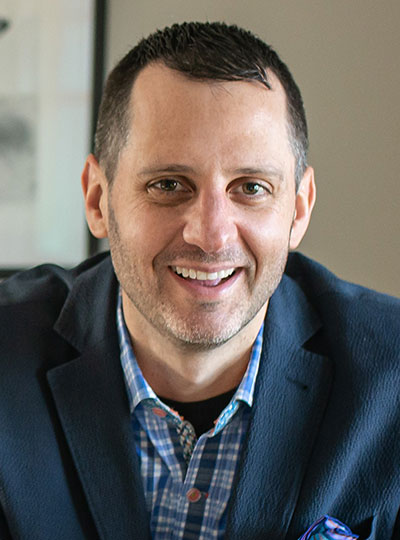|
By: Adam Greenberg, LCSW  Life is a journey filled with a multitude of experiences - some joyous, some challenging, and some that leave us questioning the very fabric of existence. Often, when faced with adversity, we find ourselves wondering: why did this happen? It's a question that has echoed through the corridors of human thought for centuries. Yet, many believe that every positive or negative experience in life unfolds for a reason, serving a greater purpose in the grand tapestry of our existence. While this notion might seem abstract, there is empirical evidence in every person's life that supports this profound belief.
Research conducted by psychologist Richard Tedeschi and Lawrence Calhoun on post-traumatic growth sheds light on how individuals can experience positive psychological change following highly challenging life events. Their studies reveal that adversity often acts as a catalyst for personal growth, leading individuals to develop a greater sense of resilience, empathy, and appreciation for life's blessings. Through the lens of this research, even the darkest moments can be viewed as opportunities for growth and transformation (Tedeschi & Calhoun, 2004).
The concept of the butterfly effect, rooted in chaos theory, suggests that small actions can lead to significant consequences over time. This theory illustrates how seemingly inconsequential events can set off a chain reaction, ultimately shaping the course of one's life. Research by Edward Lorenz, a meteorologist and mathematician, highlights the interconnectedness of events in complex systems. From this perspective, every experience, whether positive or negative, contributes to the intricate web of causality that defines our lives (Lorenz, 1963).
Viktor Frankl, an Austrian neurologist and Holocaust survivor, proposed the philosophy of logotherapy, which centers on the belief that humans are driven by a fundamental desire to find meaning in life. In his seminal work, "Man's Search for Meaning," Frankl reflects on his experiences in Nazi concentration camps and argues that even amidst unimaginable suffering, individuals can discover profound meaning and purpose. His insights remind us that adversity can serve as a crucible for spiritual growth and existential discovery (Frankl, 1959).
Advancements in neuroscience have revealed the remarkable plasticity of the human brain, demonstrating its capacity to rewire and adapt in response to experience. Studies in positive psychology, pioneered by researchers such as Martin Seligman and Barbara Fredrickson, emphasize the importance of cultivating positive emotions and resilience for overall well-being. This research underscores the transformative power of mindset and perspective, suggesting that reframing negative experiences can lead to greater psychological flourishing (Seligman & Csikszentmihalyi, 2000).
In essence, the empirical evidence drawn from various fields of study converges to support the notion that every experience in life, whether positive or negative, unfolds for a reason. From fostering resilience and personal growth to shaping the trajectory of our lives through interconnected events, each experience contributes to our journey of self-discovery and evolution. As we navigate the complexities of existence, may we embrace the wisdom that lies in every moment, trusting in the inherent purpose that guides our path.
Sources:
- Tedeschi, R. G., & Calhoun, L. G. (2004). Posttraumatic Growth: Conceptual Foundations and Empirical Evidence. Psychological Inquiry, 15(1), 1-18.
- Lorenz, E. N. (1963). Deterministic Nonperiodic Flow. Journal of the Atmospheric Sciences, 20(2), 130-141.
- Frankl, V. E. (1959). Man's Search for Meaning. Beacon Press.
- Seligman, M. E. P., & Csikszentmihalyi, M. (2000). Positive psychology: An introduction. American Psychologist, 55(1), 5-14.
About the Author...
Mr. Greenberg is dedicated to his clients' well-being, guiding them through life's challenges, including anxiety, depression, communication issues, couple conflicts, and more. He offers a variety of coping strategies and emotional support.
What sets him apart from other therapists, is his ability to implement humor into therapy, promoting a positive perspective on adversity. With a passion for helping others, his diverse career experiences enable him to connect with individuals from various backgrounds.
Mr. Greenberg graduated with honors from Fordham University Graduate School of Social Services. Prior to pursuing a career as a therapist, he accumulated a wealth of experience through approximately 15 diverse jobs spanning 4-5 distinct careers. This journey, complemented by extensive travel and cultural immersion, has uniquely shaped Mr. Greenberg, enabling him to connect with individuals from a wide array of ethnic and cultural backgrounds.
Click here to contact or learn more about Adam Greenberg Last Update: 3/14/2024
|

